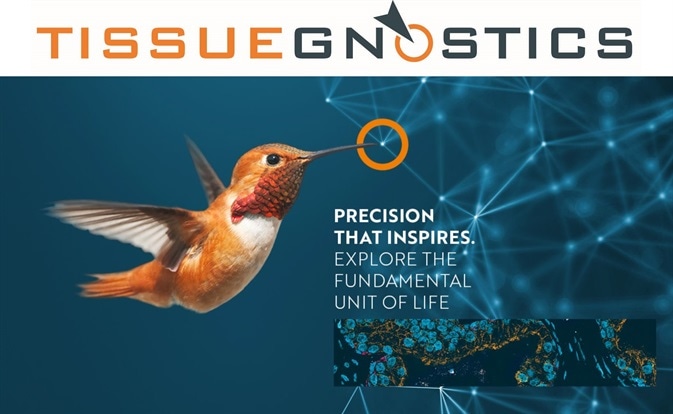An Airbus A380 is a very valuable and highly complex machine. It consists of four million individual parts which need to be put together to allow it to fly, plus dozens of electric, mechanical, hydraulic, and electronic subsystems must also communicate with each other and work together.
Aerospace engineers do not just begin to exchange parts arbitrarily in the hope of repairing it if a defect occurs in one of the systems. They follow up on the malfunction report by performing a detailed defect analysis.
They aim to understand and recognize the specific source of the defect as well as the mechanism which started the breakdown. They want to be able to act systematically and eliminate the origin of the problem.
As an example, if a retaining pin breaks, the engineers will try to understand why it broke in the first place, not just replace it. If we apply this analogy to biological systems – organisms, cells, organs and tissue – we have the fundamental idea behind personalized medicine.

© medianet/Joe Haider
A Paradigm Shift
This buzzword is currently appearing in popular science media and many expert journals. Some of these sources even call it a paradigm shift or a revolution in the healthcare system which has the capacity to change existing health services fundamentally.
However, the term is misleading because it implies that a doctor takes care of a particular person when it is more a case of individualized medicine or, better yet, precision medicine.
The idea behind it is that people are different and can react to different medication in very different ways. In the majority of cases, tiny differences have a huge impact on whether a therapy will work or not.
So What Do We Do?
For a doctor to try out different medications in a systematic manner to see which medication a patient responds to is not only pointless, it is also unethical and expensive. Genetic analysis and analysis of molecular biomarkers can be very helpful and filter out which type of patient someone is.
Biomarkers are specific, measurable biological indicators that give information on certain physiological processes. They comprise of values such as blood pressure or body temperature, but also properties on a molecular-biological level, like gene sequences, enzymes and proteins. Research on some has only started recently, but we have known about a lot of them for a long time.
Specifically, research is focused on the effects of various markers. In turn, these biomarkers are the basis for the development of new medications. It will be possible to offer therapies tailored to individual patients when these medications will become available in the future. This can allow healthcare providers to reduce undesired effects and side effects, and could eliminate interactions with other medications. This saves money and, more importantly, prevents the patient from suffering.
Debates on Costs
While public spending on healthcare continues to decline, this could mean that a revolution is coming. It may even be possible to cure chronic illnesses with such individualized, targeted therapies. True cost pricing in the healthcare system is needed to turn this possibility into reality; this is something that is lacking for the most part.
When costs are lowered in an area, this still does not mean that funds will be allocated to therapy again, and other therapeutic fields will be downsized for that reason.
Genetic analysis and molecular biomarkers can help us figure out which medications are optimal for a patient. This saves money and prevents unnecessary suffering.
Rupert Ecker, CEO, TissueGnostics.
Will Sci-fi Become Reality?
Future developments are not easily predictable. Fans of the science-fiction show “Star Trek” may be familiar with this scene: the doctor on the show has a “tricorder” and scans a patient, measuring every single health parameter and then diagnosing the disease within seconds.
Several years ago Qualcomm, the American IT company announced a competition, offering a ten million dollar prize to the first technician who could develop a functional tricorder. In other words: the future has just begun.
About TissueGnostics
TissueGnostics (TG) is an Austrian company focusing on integrated solutions for high content and/or high throughput scanning and analysis of biomedical, veterinary, natural sciences and technical microscopy samples.
TG has been founded by scientists from the Vienna University Hospital (AKH) in 2003. It is now a globally active company with subsidiaries in the EU, the USA and China and customers in 30 countries.

TissueGnostics Portfolio
TG scanning systems are currently based on versatile automated microscopy systems with or without image analysis capabilities. We strive to provide cutting-edge technology solutions, such as multispectral imaging and context-based image analysis as well as established features like Z-Stacking and Extended Focus. This is combined with a strong emphasis on automation, ease of use of all solutions and the production of publication-ready data.
The TG systems offer integrated workflows, i.e. scan and analysis, for digital slides or images of tissue sections, Tissue Microarrays (TMA), cell culture monolayers, smears and of other samples on slides and oversized slides, in Microtiter plates, Petri dishes and specialized sample containers. TG also provides dedicated workflows for FISH, CISH and other dot structures.
TG analysis software, apart from being integrated into full systems is fully standalone capable and supports a wide variety of scanner image formats as well as digital images taken with any microscope.
TG also provides routine hematology scanning and analysis systems for peripheral blood, bone marrow and body fluids.
Sponsored Content Policy: News-Medical.net publishes articles and related content that may be derived from sources where we have existing commercial relationships, provided such content adds value to the core editorial ethos of News-Medical.Net which is to educate and inform site visitors interested in medical research, science, medical devices and treatments.